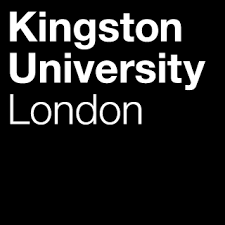Cardiac care: patient assessment and management

12 Jan 2026 (Intake closed)
Apply by: 15 Dec 2025
*The advertised teaching dates are provisional, and subject to change*
12 Jan 2026 (On Campus), 19 Jan 2026 (Online), 26 Jan 2026 (Online), 02 Feb 2026 (On Campus), 09 Feb 2026 (Online), 16 Feb 2026 (Online), 23 Feb 2026 (On Campus), 02 Mar 2026 (Online), 09 Mar 2026 (Online), 16 Mar 2026 (On Campus)
Course overview
*The advertised teaching dates are provisional, and subject to change*
This module is suitable for nurses and other registered healthcare professionals working with adult patients in a range of acute clinical settings including cardiology, cardiac surgery, acute medicine, pre-hospital and emergency care.
It will enable students working within areas such as CCU, cardiac wards, investigational units, catheter labs and critical care areas to develop the in-depth knowledge and skills to appraise evidence-based interventions and to optimise patient care.
The course can also be undertaken by practitioners working as paramedics, in A&E or in cardiac research units who would like to expand their knowledge in the care and management of cardiac patients
Aims
The module will enable students to develop the knowledge and skills required to rapidly assess acutely unwell cardiac patients and the knowledge to inform individualized, evidence-based care.
What and how you will learn on this module
How you will learn:
This module is delivered using a blended learning approach which integrates a variety of on-campus and online activities, supported by Canvas, the University’s virtual learning environment. A complementary range of activities are employed to engage you in the critical exploration of key topic areas, and the completion of formative tasks during the module also helps to keep you on track with the learning and gain feedback on your understanding of the content. A sense of community is developed and maintained with frequent opportunities for peer learning, enabling you to share your practice experiences and to learn from each other. Level 6 and level 7 students taking this module may be taught together.
Academic writing and critical thinking skills are developed through ‘The Critical Thinking Skills Toolkit’ and other academic practice activities embedded within the module, that have been designed to nurture the skills needed to facilitate you to become a thoughtful, objective and reasoned thinker. This will help you tackle the assignment(s) confidently, understand marking criteria, use evidence, take a reasoned approach, make structured arguments and engage with other points of view.
What you will learn:
Applied cardiac anatomy and physiology
• Cardiac and respiratory assessment
• Identification of the deteriorating patient
• History taking and chest pain assessment
• Cardiovascular risk factor assessment
• Respiratory assessment including arterial blood gas analysis
Acute Coronary Syndromes
• Aetiology and Pathophysiology
• Symptoms assessment and diagnosis
• Pharmacological treatments and intervention
• 12-lead ECG interpretation and cardiac biomarkers
• Complications associated with ACS
• Pre and post (Primary) PCI patient care
Cardiomyopathy and sudden cardiac death
• Classification
• Aetiology
• Pathophysiology
• Arrhythmias associated with cardiomyopathy
Inflammatory heart disease
• Endocarditis
• Pericarditis
• Myocarditis
Hypertension
• Aetiology
• Classification
• Complications
• Management
Heart Failure and Cardiogenic Shock
• Pathophysiology
• Identification and diagnosis
• Pharmacological management
• Interventions including intra-aortic balloon pump, CPAP, cardiac resynchronisation therapy, ultrafiltration, left ventricular assist device and transplantation
Cardiac Investigations and interventions
• Electrophysiology studies and ablation
• Permanent pacemakers, internal cardioverter defibrillator and cardiac resynchronisation therapy
• Percutaneous interventions
• Pre and post procedure care and complications of the above
Health promotion
• Primary and secondary prevention
• Cardiac rehabilitation, including lifestyle modification.
• Psychosocial support.
Common drugs used in Cardiology
• Beta Blockers
• Calcium channel blockers
• ACE inhibitors
• Diuretics
• Anti-anginal drugs
• Antiarrhythmic drugs
• Statins
• Antiplatelets
Academic practice
• Database searching
• Referencing and avoiding plagiarism
• Critical Thinking Skills Toolkit
• Presentation skills
Course length: 10 Teaching Days
Assessment
Reflective essay (2000 words)
This module can contribute to the following programme(s)
Accredited by




Learning Outcomes
Demonstrate in-depth knowledge of the applied anatomy and physiology of the cardiovascular system and apply it to patient care
Demonstrate the ability to apply knowledge in recognising deteriorating patients with acute cardiac conditions and formulating a plan to prioritise evidence-based care based on current published guidelines.
Systematically assess patients using a range of appropriate clinical tests and critically evaluate the findings, demonstrating knowledge of diagnostic criteria for cardiac conditions, associated pathophysiology and supplemental investigations.
Demonstrate knowledge and application of the associated pharmacological and non-pharmacological management of a cardiac patient.
Promote the safety and well-being of the patient with cardiac conditions using effective communication with the multidisciplinary team.
Critically discuss the professional role, attitudes, values, beliefs, and ethical issues when caring for critical care patients and their families.

Course details
Course leader
Raj Mungur
Administrator
Course delivery
Blended Learning. On-Campus sessions subject to change. If government advice changes, we may need to update our plans. If we do so, we will update this information, and will keep current students and offer holders informed by email.
Downloads
Prerequisites
Programme entry requirements
Co-requisites: Applicants should be working in an environment where they frequently care for adults with cardiac conditions.
Funding
£2,345.00
Self-funding students will need to make a one-off payment for the module via our secure payment portal before the online enrolment process.

Make an enquiry
Make an enquiry
